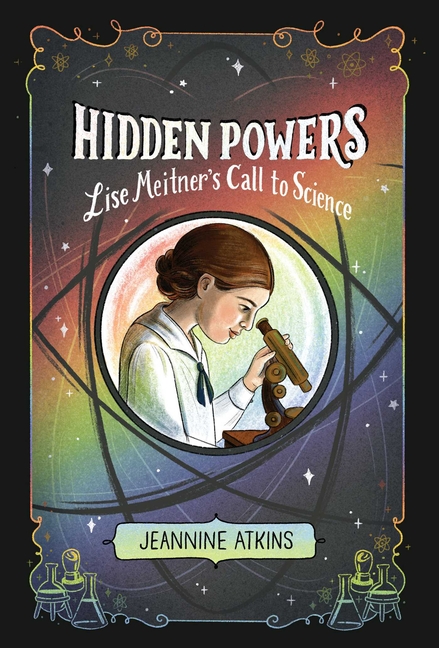Book Description
for Hidden Powers by Jeannine Atkins
From Cooperative Children's Book Center (CCBC)
Lise Meitner’s work as a scientist led to discovery of the element protactinium early in her career, and nuclear fission later. An Austrian Jew born in 1878, Lise was living and working in Germany when Hitler’s rise to power began—vividly accounted here. Like many others, she was eventually dismissed from her job because she was Jewish. Colleagues helped her escape to Sweden, and it was there that she revisited some of the work she’d done with Otto Hahn, with whom she’d collaborated for 30 years in Germany, and identified nuclear fission. When Hahn, whose name appeared first on all of their papers, was awarded the Nobel Prize in 1944 for the discovery, he did not credit or acknowledge Lise’s work, a stunning example of the sexism she faced throughout her life and career. Lise, meanwhile, had refused to help develop the atomic bomb, firm in her resolve to not be involved in any effort that contributed to war. This fictionalized account of Lise’s life is a novel in verse that makes the most of its form, with compelling scientific metaphors for events or feelings in her life. The author’s note is an essential complement to the primary narrative, explaining that this admirable portrait of Lise has a framework of facts but includes many imagined elements, especially when it comes to how people might have been feeling or what they might have said. (Ages 10-13)
CCBC Choices 2023. © Cooperative Children's Book Center, Univ. of Wisconsin - Madison, 2023. Used with permission.


